
He couldn’t have been more than 17 or 18. A kid by any measure. His eyes lit up when he saw me.
“Brother, are you Muslim?” he asked.
“Yes. Asalaamo Alaikum brother,” I replied.
“Wa alaikum asalaam! What is your name, brother?”
“Qasim.”
“Are you here from America brother Qasim?”
“Yes.”
“Come. Let me show you Hebron. Let me show you my city, and our famous mosque.”

I smiled at him and nodded as we began walking together. The famous mosque he referred to was the Ibrahimi Mosque. A sacred and ancient mosque that is said to be the final resting place for prophet Abraham, his wife Sarah, their son Isaac and grandson Jacob, and their wives Rebecca and Leah.
An ancient mosque revered by Muslims, Christians, and Jews alike, tragedy struck when a terrorist attacked the Ibrahimi Mosque in the horrifying 1994 Cave of the Patriarchs massacre. A massacre executed by American-Israeli physician, Dr. Baruch Goldstein, who dressed up in an Israeli military uniform and opened fire on Palestinian Muslims as they worshipped, killing dozens and injuring hundreds. Goldstein committed his terrorist attack during the holy month of Ramadan. Below is a 30 second clip of the detailed tour my Palestinian host graciously afforded me in Hebron. I deliberately do not depict him or name him for his own safety.
A planned attack
Baruch Goldstein’s terrorist attack was not unexpected. He was a member of a known US State Department designated zionist terrorist organization called the Kach Movement. In 1981 the New York Times published a letter to the editor from Goldstein, where he wrote Israel "must act decisively to remove the Arab minority from within its borders.” And even as he worked as a physician in Israel, Goldstein reportedly refused to treat Arabs, even Arabs in the Israeli military.
Then, in 1993 Goldstein “acted decisively” and committed an acid attack on Palestinians at the Ibrahimi mosque, assaulting six worshippers. And despite warnings to the Israeli government from Israel’s own intelligence agency Shin Bet, that Goldstein was an existential threat to Palestinians, the Israeli government took no meaningful action to hold him accountable. Thus, Goldstein’s 1994 attack was his second attack, and the result of abject disregard for the safety of Palestinians living on their own land. On that fateful day on February 25, 1994, Goldstein murdered 29 Palestinian Muslims as they worshipped, and injured 125 more. He was finally subdued and beaten to death.

One would think that Goldstein is today derided as the racist, terrorist, and mass murderer he was. And certainly many accurately deride him as that. Still, I was disturbed to find in Hebron an alter built in honor of Goldstein. And lest anyone claim this is a one off, the alter is built opposite Meir Kahane Memorial Park in Kiryat Arba, an illegal Israeli settlement next to Hebron. An entire memorial built to Rabbi Meir Kahane, the founder of the Israeli far-right political party Kach, which is the aforementioned US State Department designated zionist terrorist organization of which Goldstein was a devout member. And as we watched and observed Goldstein’s tomb, we witnessed illegal Israeli settlers arrive to pay their respects and prayers for him, praising him as a hero of Israel. Indeed, inscribed on Goldstein’s tomb in Hebrew is, “He gave his life for the people of Israel, its Torah and land."
Apartheid in Hebron
As I exited the Ibrahimi mosque my host greeted me with a smile and continued the tour of his home city. The city where he was born, raised, and had never left. We walked a few hundred meters down the street, past where we initially met. Momentarily distracted I looked down at my phone to respond to a text and kept walking. As I looked up I noticed my host had vanished. I suddenly walked alone. Bewildered I turned around and saw him standing about 25 meters behind me.
I waved my arm and motioned for him to come and continue our conversation.
“Come back brother. I cannot walk to you!” He yelled out to me.
Confused I walked back towards him, “What do you mean you cannot walk to me? Come, I’m enjoying our conversation. Let us continue.”
I arrived back to the imaginary line he seemed unable to cross. Like a mime stuck in a box, he could not move forward. As we spoke an Israeli family walked past us, impervious to the imaginary line blocking my Palestinian host.
“You don’t understand brother Qasim. I cannot cross. They will arrest me.”
“Who??”
“Them.”
He pointed the Israeli soldiers dressed in full uniform, armed to the teeth with assault rifles.
“Don’t worry, brother. Come with me.”
In my ignorance, and foolishness, I believed I had some ability to protect my host from the Israeli military illegally occupying Hebron. Or perhaps I found it so incredulous that a Palestinian born and raised in Hebron could not walk in his own city without being arrested, simply for the crime of walking while Palestinian, that I forced myself to believe there must be some other explanation?
“No brother Qasim. You don’t understand. I cannot go any further than this location.”
“But that Israeli family just walked past us no problem?”
”The Israelis can walk there, but we cannot.”
“You cannot walk on your own streets?” I vocalized my disbelief to my host.
“No, only the Israelis can walk on these roads. We are not allowed to walk here.”
”Why not? When did this start?”
“After the terrorist attack in the Ibrahimi mosque. The Israeli government shut everything down. Our businesses. Our streets. Our entire city.”
“Wait, I’m confused. That terrorist attack was by an Israeli, Baruch Goldstein. Why are Palestinians being punished on their own land for suffering the violence of a foreign terrorist?”
He took a deep breath and sighed. A glimpse of sadness. A pause, as if to look around to ensure no one else was listening. Or perhaps from the exhaustion of having to repeatedly explain this basic fact of his life to every new visitor to Hebron.
“This is, how you say, this is the apartheid we are living in. I’m sorry brother Qasim. I wish I could show you the rest of my beloved city. I just cannot go any further from here.”
I felt selfish and embarrassed at my own ignorance. Angry and confused for my host. I felt my eyes well up with tears of rage but I knew I had to keep my composure. Like a gut punch I realized that it was not simply that my host had never tried to leave Hebron—it is that he could not leave Hebron. He was a prisoner in his own home. I was neither Israeli nor Palestinian. Yet I could walk freely and with more security in a city I’d never been to, than my Palestinian host could, though he was born and raised in the city of Hebron. A city that had roads and streets reserved only for illegal Israeli settlers and non-Palestinian foreigners like myself. A city with streets for one racial class, but not for another.
Reflections
I had felt this suffocation before. Back when I was about this young man’s age in 2000, visiting Robben Island in South Africa. I heard directly from former political prisoners who suffered alongside Nelson Mandela about the apartheid conditions under which they existed. And as I heard my Palestinian host describe his life in Hebron, my mind conjured up those reflections of apartheid South Africa and indeed of Jim Crow America. Suddenly, my host made a comment laced with urgency that made me snap out of my self-pity.
“Brother Qasim I have to go. I cannot stay here. They’re coming!”
“Who’s coming?”
I turned around to see Israeli soldiers pointing at us and walking towards us. I looked back and my host walked as quickly as he could with his head down, trying not to draw any additional attention to himself. He’d been afflicted by a fear I did not realize at the moment, but would soon. I thought about calling out after him, but I didn’t know what I would say. I turned back around to see myself surrounded by Israeli soldiers, rifles in hand, demanding I show them my papers—or else.
And that’s when they found out I was born in Pakistan, a country that does not recognize the State of Israel. They were not pleased.
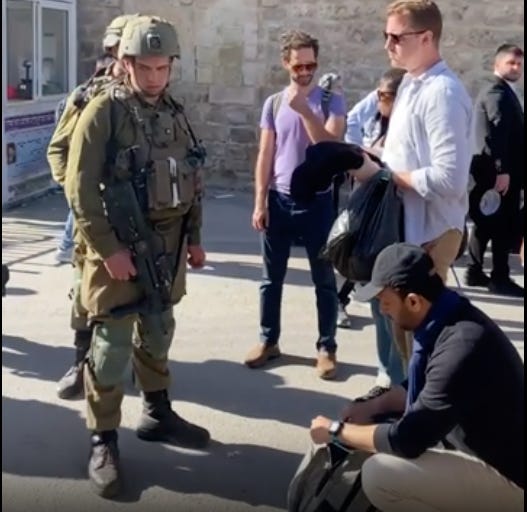
To be continued in Part 3.
Read Part 1 of this series here.
Why Your Support Matters: Every dollar we spend is a vote for the kind of future we want. Help me create a future more committed to justice and universal human rights. Subscribe, and I welcome your thoughts, feedback, and insights. Thank you.

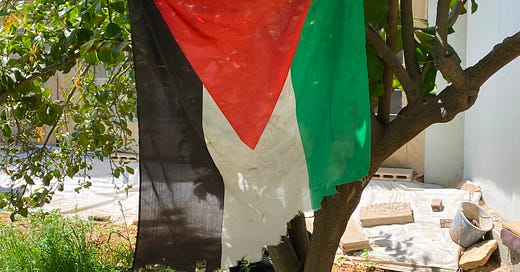



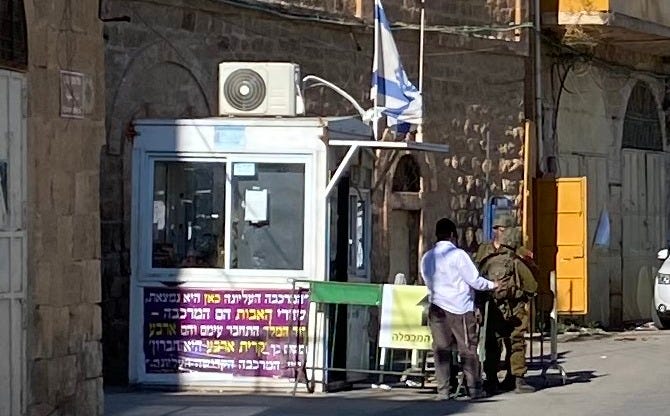





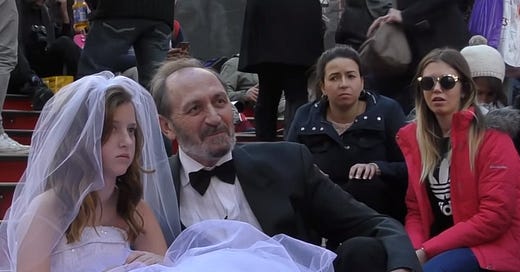

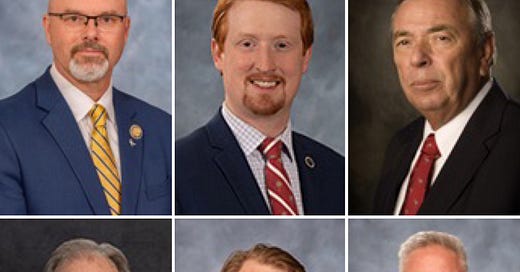

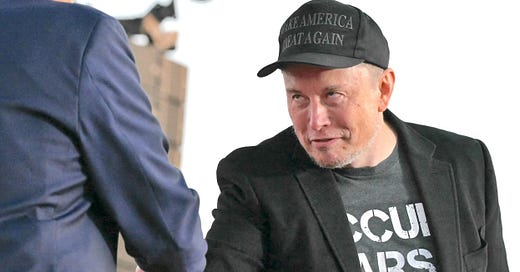


No place should exist where some are exalted while "others" live in abject fear. No place should exist where some walk freely while "others" are commanded by heavily armed soldiers, "Let me see your papers--or else!" No place should exist that has soldiers armed to the teeth to let some know they are safe and "others" know they are not. I say all of this as my heart aches to know my words will fall on deaf ears for those who need to hear this the most. 😞
TThis brings tears to my eyes, because I know without a doubt, it could happen here. Absolute power is a horrific thing.
It terrifies me, but I would rather be dead on my late life than humble myself before another human who doesn’t even deserve my spit. I’m going to die anyway, and truly, I’m not afraid of death. Some things are worse than death. Believe it! Tried to add more to this post. Bibi is an anti-Muslim pos. The US just gave more aid to Bibi to bond Iran. It seems people aren’t looking at the situation, only their emotions.